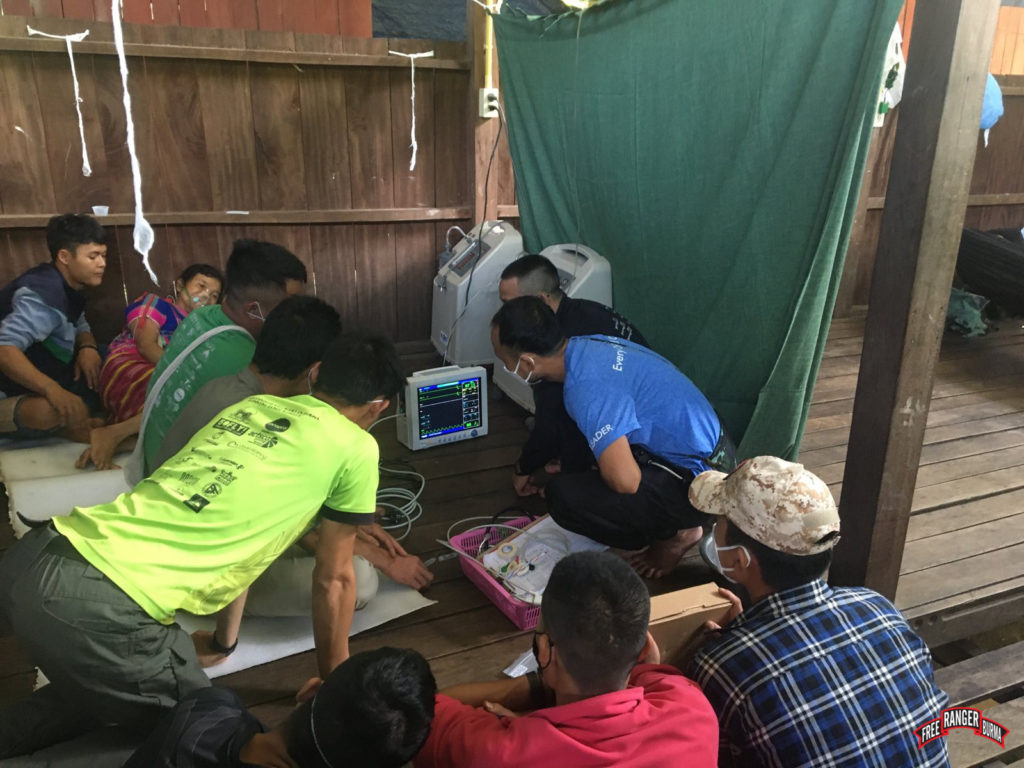A Jungle School of Medic Story: Naw She Mu
7 March 2022
Karen State, Burma
**Names have been changed
Naw She Mu, 47, was admitted to FBR’s Jungle School of Medicine (JSMK) Inpatient Patient Department (IPD) due to shortness of breath. She has had asthma for years but is not on any medications for it. She arrived in mild distress and was given some nebulization treatments (Neb). Neb treatments provide a liquid form of medication to become a mist that is more easily introduced into the lungs. The medications open the airways in the lungs that allow for more airflow. Ideally, this reduces the constriction of the airways caused by asthma. In asthma, a “trigger” sets off an attack that constricts the airways in the lungs, causing wheezing and less oxygen to the lungs and body. These attacks can be very mild or severe.
As Naw She Mu was getting ready to go to dinner at JSMK, she suddenly collapsed and appeared to stop breathing. The senior JSMK medics quickly recognized the danger of the situation. With the student medics, they checked her vital signs, and gave her atropine immediately. They started oxygen and propped her into an upright position with help from her family. Other medications were given to help decrease airway constriction and inflammation. Naw She Mu was able to open her eyes and communicate with her family and the medics after about an hour.
A Singaporan surgeon volunteer had donated a monitor to JSMK which had just arrived the day before. JSMK staff had an impromptu training on how to use it and were able to monitor Naw She Mu’s oxygen saturation. Normal O2 sats are greater than 94%. Naw She Mu’s O2 dropped into the 80’s whenever the oxygen was removed or turned down. After we again completed rounds on the other patients in IPD, we prayed for Naw She Mu and asked God to open her airways so she could return to her family. Our team surrounded her during this entire rescue, fanning her and reassuring her.
The next morning at rounds, Naw She Mu was sitting up, eating some breakfast, and talking with her family. We discussed what her “triggers” might be. The family was included and mentioned that due to cooking in the homes with fire and poor ventilation, the smoke might be her trigger. We discussed some ways of avoiding this in the future by using an outside cooking area, sharing the cooking, or providing more ventilation during cooking.
Naw She Mu went home five days later, after being weaned off the oxygen and started on two inhalers that will hopefully prevent future severe attacks. This incident highlights the effects of JSMK training and the abilities of the medics to respond to the needs of the Karen people. Their life-saving actions were done in a calm, efficient manner. The family was very grateful that Naw She Mu was able to return home to care for her family.
God Bless You,
Free Burma Rangers

